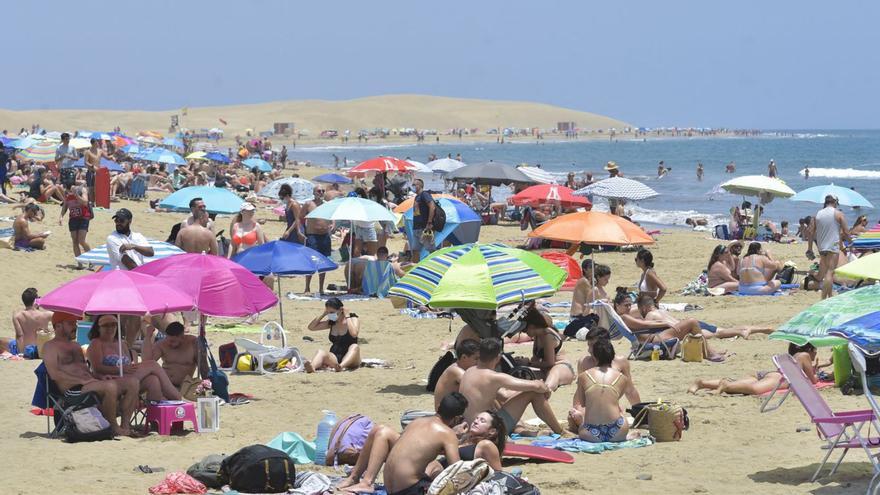
The CEOE of Tenerife lowered its forecasts for economic growth Canary Islands of the years 2022 and 2023but hopes that the Archipelago can avoid the recession thanks to the fact that its economy depends on tourism.
In its report on the economic situation for the second quarter of 2022, presented this Friday and prepared by the consulting firm Corporación 5, the CEOE of Tenerife forecasts a growth of the Gross Domestic Product for 2022 of 5.9%, compared to 6.3% that I predicted three months ago.
For 2023, the forecast for growth of the Canarian economy of the Tenerife employers stands at 4%, three points less than the 7% anticipated in the economic situation report for the first quarter.
The fiscal “poor response” to inflation by the Government of Spain, the delay in the implementation of European funds and the tightening of financial conditions are some of the risks that have led to a downward revision of growth, as stated the president of the Tenerife CEOE, Peter Alfonsoand the consulting director of Corporación 5, Jose Miguel Gonzalez.
José Miguel González said that after entering US technically in recession (two quarters in a row with negative growth), it is possible that the same thing could happen this year in Europe this very yearwhich would be transferred later to Spain, while in the Canary Islands “we hope to get rid of it”.
Precisely the economic dependence on tourism, which was what harmed the Canarian economy more than others in the coronavirus crisis, is what can lead the archipelago to avoid recession in this case, because foreign demand should be the one that maintains consumption, according to González.
In this regard, he explained that the most immediate uncertainty about tourism is the impact that the economic situation will have on German tourism as of October.
For now, according to the economic situation reporttourism, which grew a lot in 2021 after the stoppage due to the pandemic, its growth has stabilized in 2022, with gradual advances in all parameters, although without yet reaching the figures for 2019.
Vehicle registrations and retail sales have also continued to grow in the second quarter, while employment is at record figures and the unemployment rate falls to 17.7%, although we must take into account the decrease in the active population and the importance of public employment, clarified the economist.
The risks for the Canarian economy
The main risks and uncertainty for the Canarian economy in the coming months include, according to the employer, the lack of moderation in the price growth, energy production, the tightening of financial conditions and the “poor” fiscal response.
There are also risks for the Canarian economy derived from the premature elimination of economic and social incentives and the delay in the implementation of the European Union’s Next Generation funds.
For the CEOE, the response of public administrations to inflation should go through the tax reduction in indirect taxes and personal income tax, something that “little by little they will have no choice” but to undertake.
On the contrary, the measures of the State are focusing on the compensation of income to consumers, such as the discount of 20 cents on fuel, something that does not affect the moderation of prices, nor the creation of new tax events for banks and electricity, which only produce increases in the cost structure that in one way or another affect the final price.
As for the rise in interest rates, it is insufficient by itself, because the rise in prices derives fundamentally from supply problems, not from excess demand.
Pedro Alfonso also insisted that the administration in the Canary Islands, which accounts for a third of the economy and employment, has to start behaving “more efficiently.”
Alfonso warned of the competitive imbalances between sectors on the islands and the drop in productivity, as well as absenteeism from work that in the first quarter of the year affected 8.6% of workers, compared to 7.1% of all workers. Spain.
José Miguel González demanded an income and competitiveness pact that allows socializing losses and sharing profits, because of course what is not sustainable neither for the economies nor for the companies is that there are wage increases at the level of inflation or the maintenance of purchasing power .
















